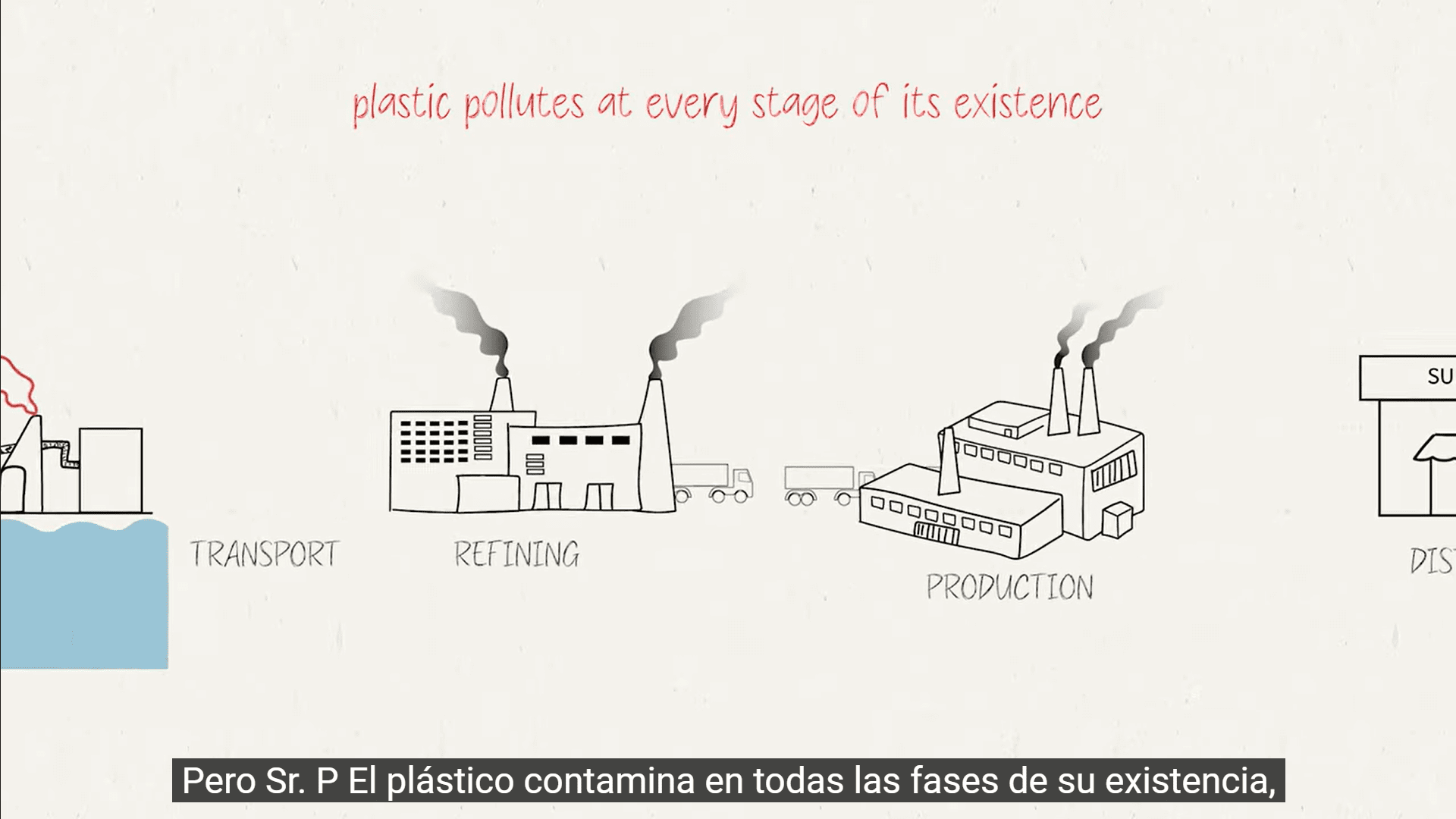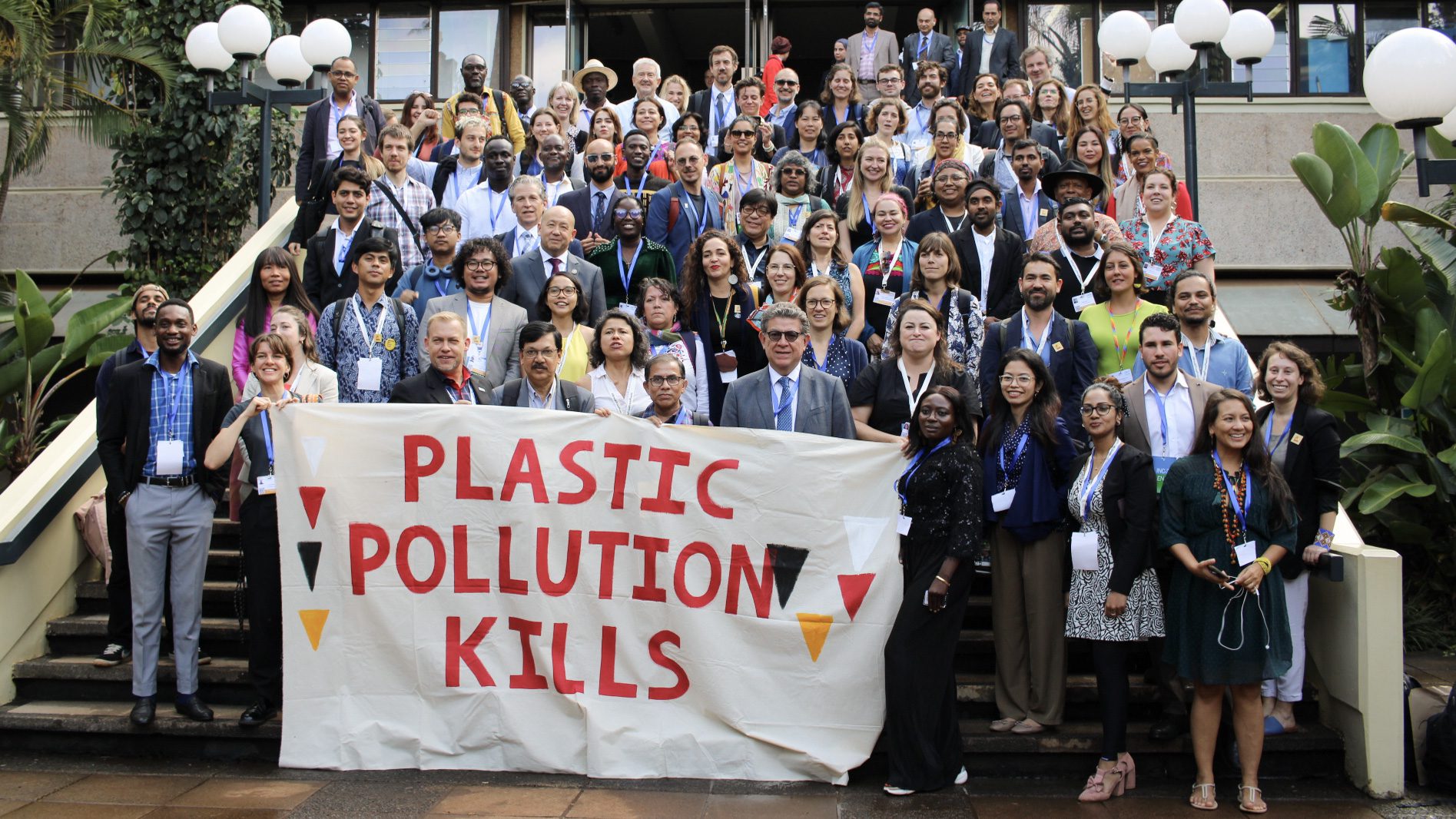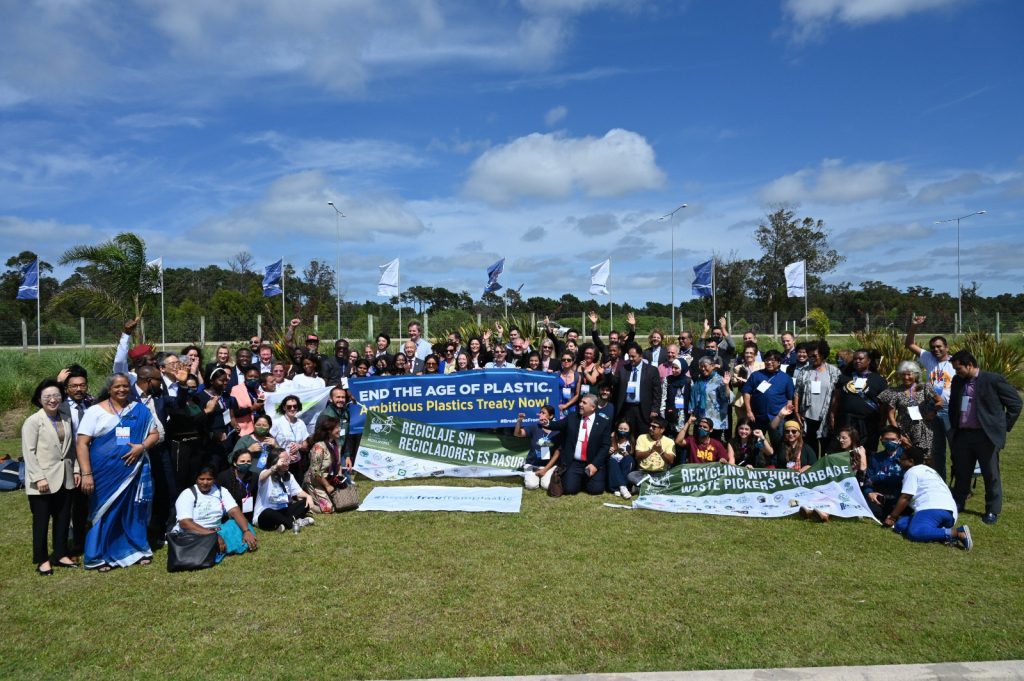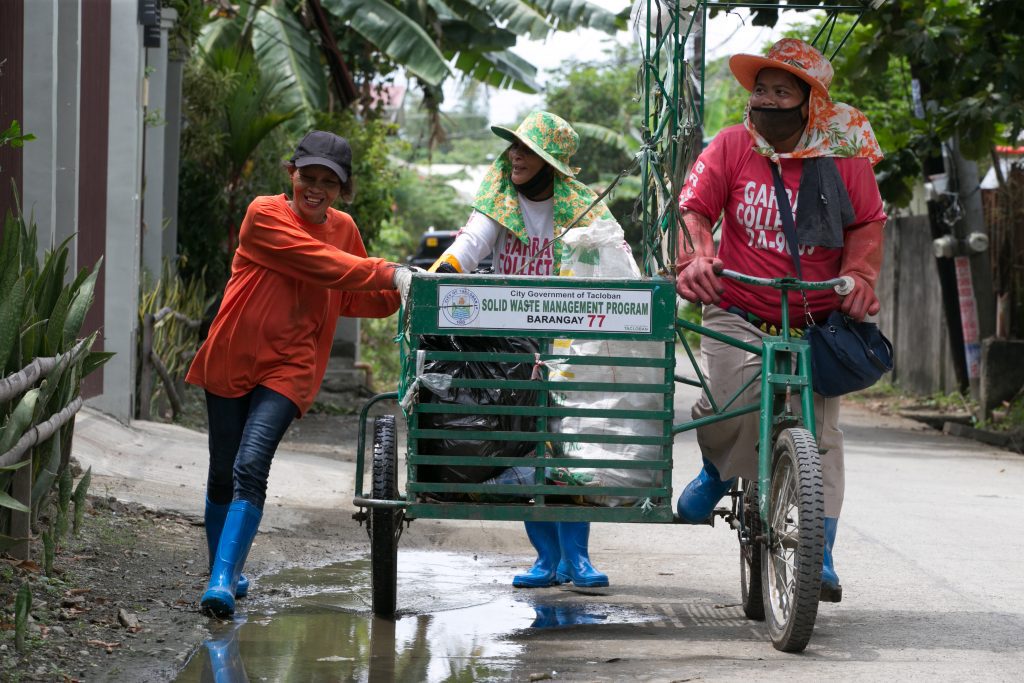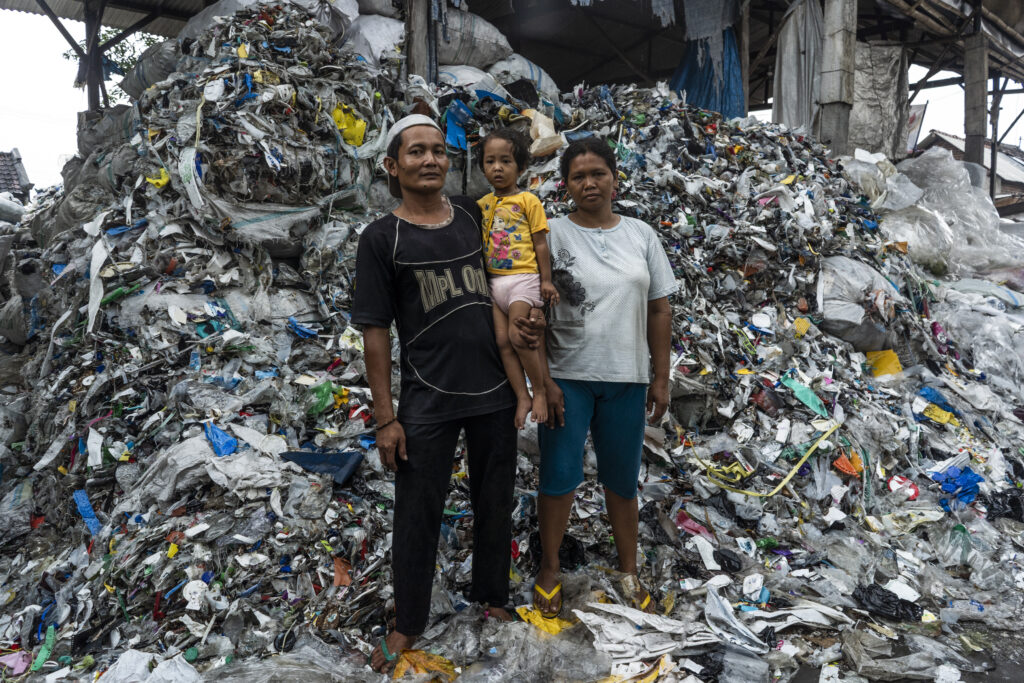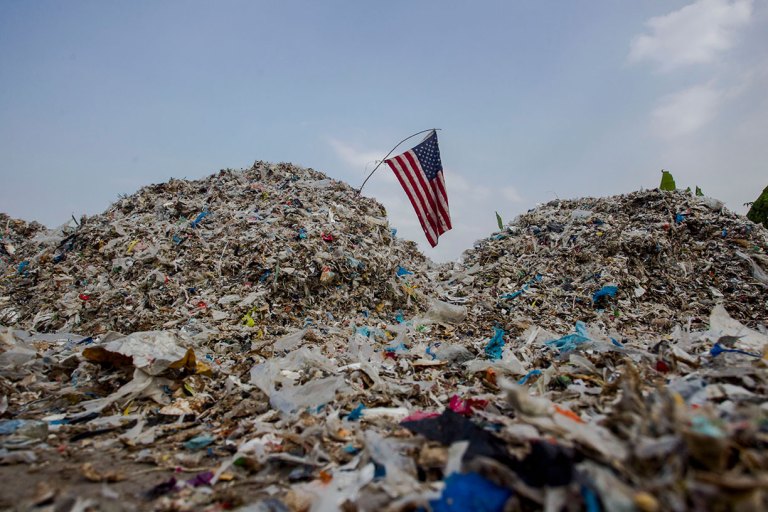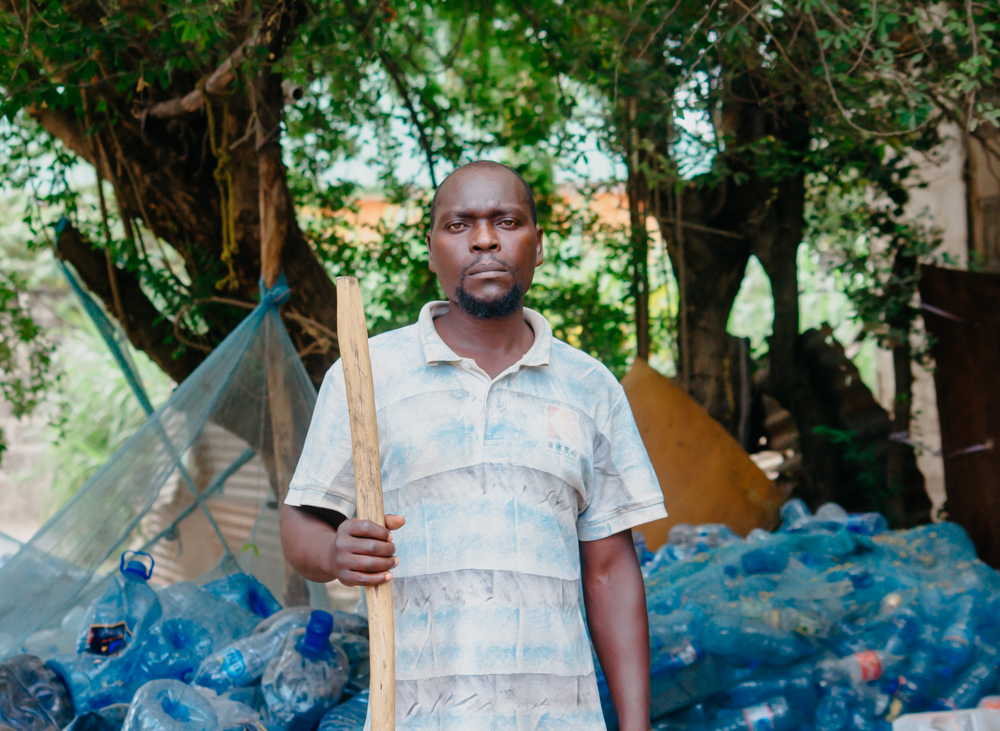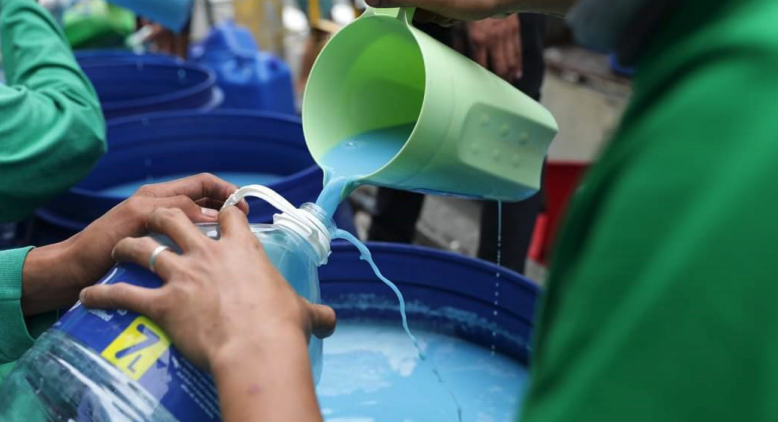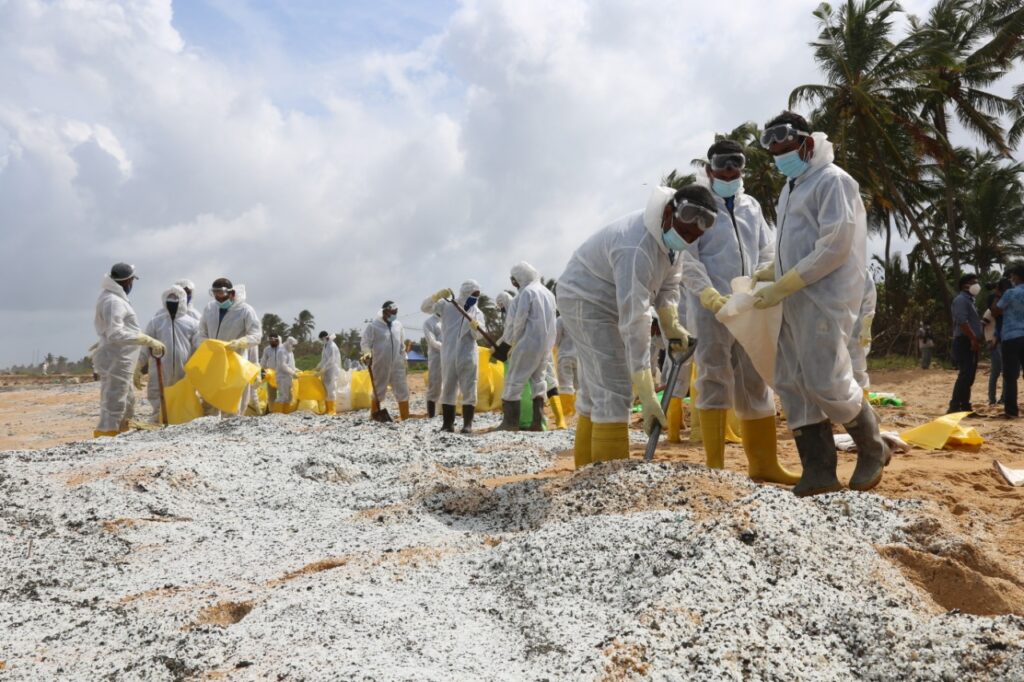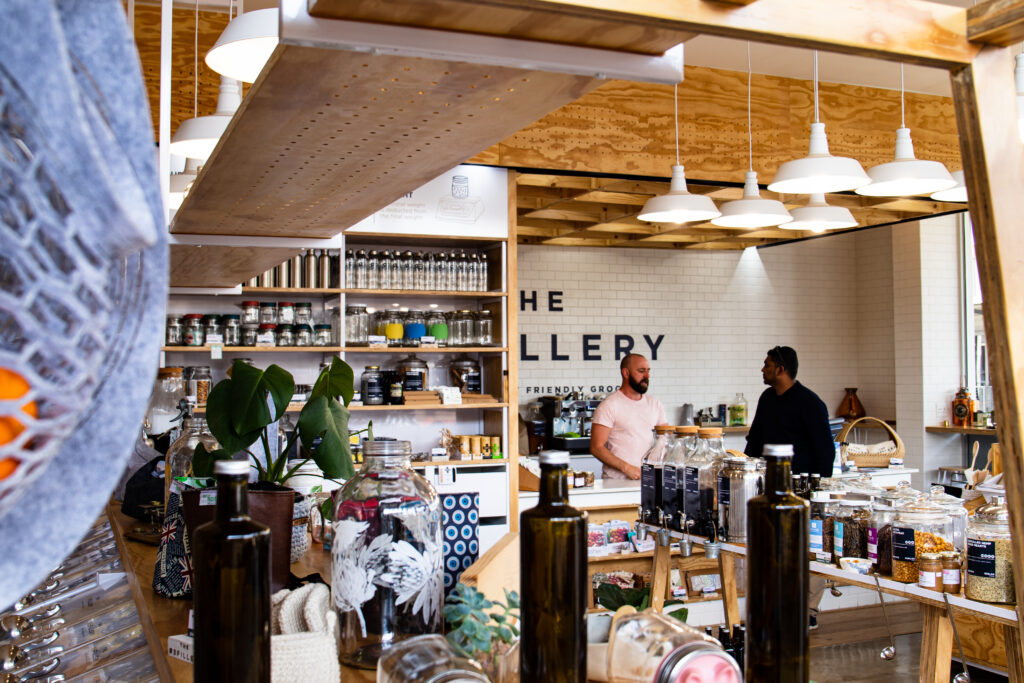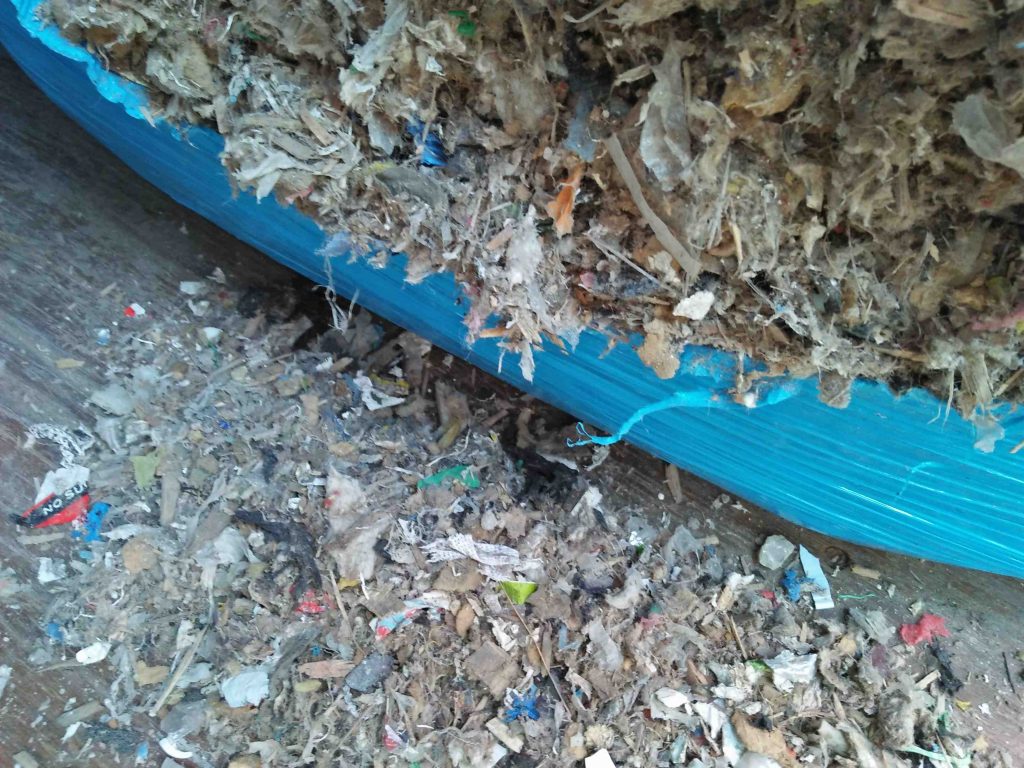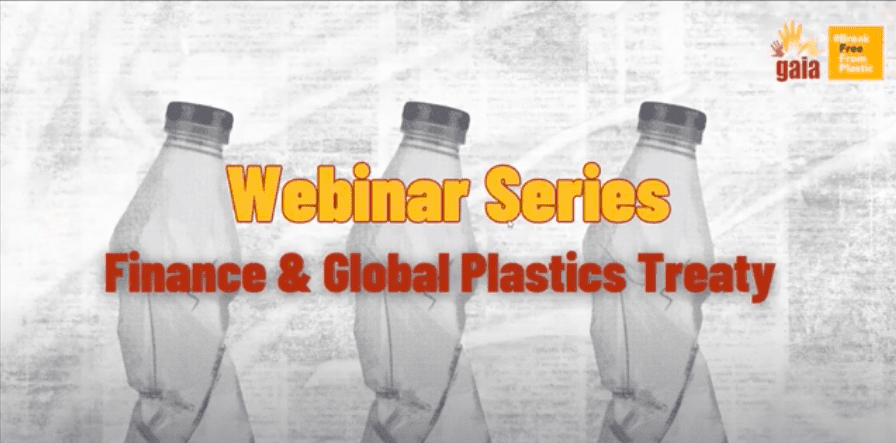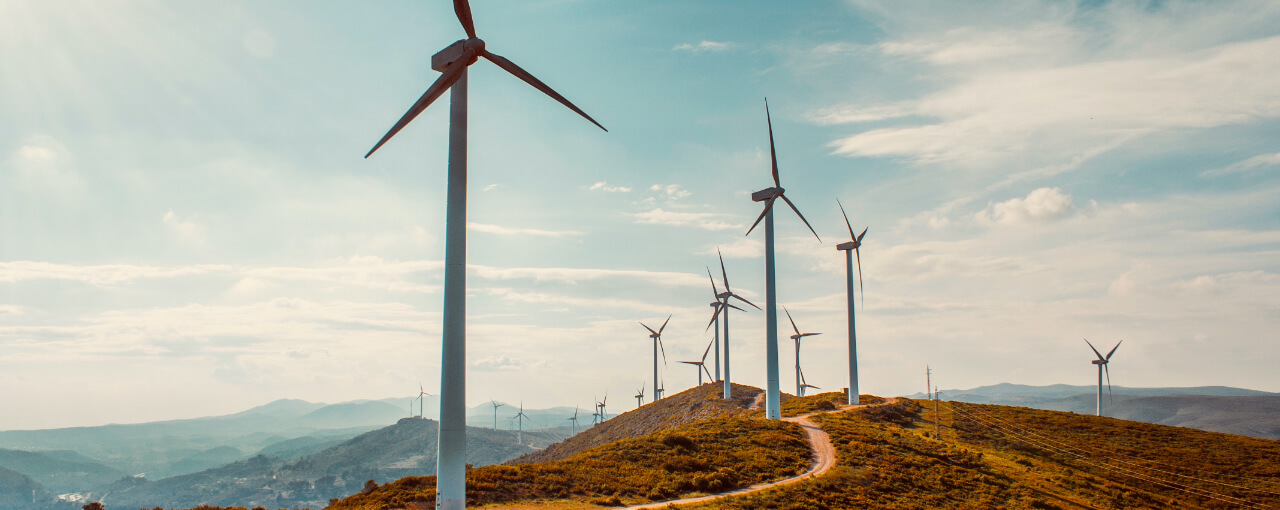The Inflation Reduction Act (IRA) channels $270 billion in tax credits for climate investments but raises concerns about incineration—a false solution to waste disposal that could generate 637.7 million tonnes of CO2e emissions over two decades, further harming the environment and disadvantaged communities.
By: Marcel Howard (Zero Waste Program Manager, US/Canada) and Jessica Roff (Plastics & Petrochemicals Program Manager, US/Canada)
Key Highlights
- The Inflation Reduction Act (IRA) is primarily a tax bill. Of the promised $369 billion in climate investments, $270 billion will come in the form of tax credits1
- Incineration is one of the most polluting and expensive waste disposal systems. Industry2 often greenwashes incineration as “waste-to-energy”3 despite producing minimal amounts of usable energy and massive energy input
- By measuring the lifecycle climate impacts of incineration accurately, the Department of the Treasury can deny polluting facilities billions in tax credits intended for actual sustainable energy solutions and ultimately delay or block their construction or expansion
- If industry succeeds in propping up incinerators for 20 years, they will produce 637.7 million tonnes of climate-change-inducing CO2e emissions and further exacerbate toxic pollution and environmental racism4
- Pairing new subsidies for incinerators with incentives for EVs is perverse
- Turning waste, including fossil fuel-derived plastics, into jet fuel is dangerous and does not decarbonize air travel
- Two-thirds of US incinerators are located in states that include incineration in their renewable energy portfolio
- The IRA allocated billions of dollars in lending subsidies specifically meant to drive reinvestment in low-wealth and environmental justice communities. Environmental justice, frontline, and fenceline groups should consider applying for these IRA lending programs
Background
The United States (US) has a waste problem compounded by a plastic problem. For decades, we have been handling our waste in ways that harm communities, our climate, and the natural world. Federal, state, and municipal governments continue to site waste incinerators of all forms in Black, brown, indigenous, and lower-wealth communities — plaguing them with decades of harmful air emissions, high levels of greenhouse gasses, toxic waste, accidents, and other health and safety-related concerns. From fossil fuel extraction to final waste product disposal, the entire production process damages these communities and numerous others. Across the board, incineration is one of the most polluting and expensive waste disposal systems.
Industry often greenwashes incineration as “waste-to-energy” despite producing minimal amounts of usable energy and leverages this greenwashing to access billions of dollars in federal, state, and local green, renewable, and sustainable energy subsidies and tax breaks. Against this backdrop, the Biden Administration signed the Inflation Reduction Act (IRA) into law on August 16, 2022. Many agencies are already approving and funding false solutions under the IRA. The Department of Energy (DOE) is funding new carbon capture programs at nearly $3.5 billion and allocating $1.2 billion of Justice40 money to develop direct air capture facilities. We are in a pivotal moment where the US must decide if it will take critical steps to lower greenhouse gas and toxic emissions and move toward a truly sustainable future or will continue to subsidize the dirtiest industries to annually emit millions of tonnes of new CO2 and other dangerous air pollutants.
IRA Overview
The Biden Administration claims its 755-page IRA is the most comprehensive climate bill in US history that is supposed to “make a historic commitment to build a new clean energy economy.” Its provisions on climate change mitigation, clean energy, and energy innovation dominate headlines, as it raises nearly $800 billion from multiple sources. President Biden said, “With this law, the American people won and the special interests lost.” To ensure this is true and stop the incinerator lobby and other special interests from cashing in on a new pool of taxpayer money, the federal government must implement critical changes to its business-as-usual model.
The IRA is primarily a tax bill. Of the promised $369 billion in climate investments, $270 billion will come in the form of tax credits. Before the IRA, Congress awarded tax credits to specific technologies (including incinerators) regardless of greenhouse gas emissions or community harm. Beginning in 2025, however, their eligibility will depend entirely on the Department of Treasury (Treasury) determining that they are zero-emission technologies. By measuring the lifecycle climate impacts of incineration accurately, Treasury can deny polluting facilities billions in tax credits intended for actual sustainable energy solutions and ultimately delay or block their construction or expansion.
Threats & False Solutions
Lifelines to Old, Failing Incinerators
Corporate polluters are corrupting the IRA, lobbying to weaken its rules and definitions to qualify for billions in new subsidies to expand and retrofit existing incinerators, most of which have been operating for an average of 32 years. It is nearly impossible to construct new conventional incinerators due to cost and community opposition, so industry is focused on expansion and modification. If industry succeeds in propping up incinerators for 20 years, they will produce 637.7 million tonnes of climate-change-inducing CO2e emissions and further exacerbate toxic pollution and environmental racism.
Codifying False and Greenwashed Definitions
The incinerator lobby’s goal is to maximize subsidies, profits, and expansion and to use the IRA and other climate bills as a subsidized path to an undeserved sustainable image upgrade. In the context of the IRA, federal agencies such as the Treasury, the Department of Energy (DOE), and the Environmental Protection Agency (EPA) can either categorize incineration as the dirty, expensive, polluting process it is or bolster industry’s claims that incineration produces sustainable energy. If the federal government supports industry’s definitions in the earliest stages of IRA implementation, they will frame agency action and provide billions in tax credits, likely being codified for many climate laws, including the IRA.
IRA Breakdown & Opportunities for the Incinerator Lobby
The incinerator lobby is working to undermine all aspects of the IRA, specifically focusing on (1) the Renewable Fuel Standard (RFS), (2) Sustainable Aviation Fuel (SAF), and (3) IRA lending programs.
Renewable Fuel Standard (RFS)
In consultation with the Department of Agriculture and DOE, EPA implements the Renewable Fuel Standard (RFS) program. The RFS program is a “national policy that requires a certain volume of renewable fuel to replace or reduce the quantity of petroleum-based transportation fuel, heating oil, or jet fuel.” The four renewable fuel categories under the RFS are biomass-based diesel, cellulosic biofuel, advanced biofuel, and total renewable fuel. Although long limited to liquid fuels like ethanol, Biden’s EPA is in the process of allowing electricity from certain types of bioenergy to generate eligible credits. Under the current proposal, electric vehicle manufacturers would contract with power producers to generate highly profitable RFS credits.
Pairing new subsidies for incinerators with incentives for EVs is perverse. While support for electric vehicles is vital, it must not be fueled by dirty energy nor sacrifice frontline and fenceline communities. Incinerator interests recently launched a lobbying campaign to secure these incentives. Fortunately, EPA is not required to allow incinerator electricity into the program and has recently tabled an industry-backed eligibility proposal. But, only public pressure on Biden’s EPA and key Administration climate deciders will ensure they don’t approve such proposals.
Sustainable Aviation Fuel (SAF)
As one of the most generous IRA incentives, the Sustainable Aviation Fuel Tax Credit (SAF) poses an urgent environmental justice concern. The credit increases in value for lower lifecycle emissions fuels. Treasury’s implementation will determine if this approach succeeds or fails. Industry interests are pushing to make the credit friendlier– and more lucrative–to a new generation of incinerators masquerading behind greenwashing like “pyrolysis,” “chemical or advanced recycling,” and “plastic-to-fuel.” Turning waste, including fossil fuel-derived plastics, into jet fuel is dangerous and does not decarbonize air travel.
Although the new aviation production tax credit theoretically excludes petroleum-based feedstocks like plastic, industry is pressuring the Administration to interpret the law to maximize benefits for incineration-based aviation fuels. President Biden and Treasury must decisively determine that plastic-derived fuel — including that derived from pyrolysis oil or any other product of chemical recycling/pyrolysis/gasification — is ineligible for these tax credits.
Lending Programs
The IRA allocated billions of new dollars to EPA and DOE, in particular, to expand existing lending programs and launch entirely new ones. Like the rest of the IRA, these programs’ climate and justice benefits depend on implementation. EPA is in charge of the new Greenhouse Gas Reduction Fund (GGRF), arguably the most important non-tax provision of the IRA. Worth $37 billion, it will be divided into three separate programs. EPA released broad, unenforceable guidelines in April 2023, suggesting they will focus lending on distributed generation, building decarbonization, and transport. These guidelines will not ensure the money is appropriately allocated, so EPA must prioritize applicants working on proven zero waste approaches.
DOE is in charge of The Energy Infrastructure Reinvestment (EIR) Program, a new loan guarantee program with $250 billion that must be spent before 2026. It can fund energy infrastructure upgrades and the reopening of defunct energy infrastructure, both of which industry could coopt to support their ongoing incineration and chemical recycling plans. DOE must refuse to consider any incinerator applications to guarantee industry does not use loopholes to access clean energy tax credits.
In July, the Republican-led House Appropriations Committee passed the Interior, Environment, and Related Agencies budget for Fiscal Year 2024. Their budget supports chemical recycling while cutting massive amounts from EPA’s budget and the IRA’s environmental justice efforts, including a nearly $4 billion EPA budget cut (a 39% reduction over 2023), reneging on the IRA’s $1.35 billion promised in environmental and climate justice grants.
Call to Action
The incinerator lobby is so desperate for money and a government-greenwashed reputation that they launched a new, big-money–astroturf5 network, including DC power brokers and local government enablers. The combined movements6 for climate justice don’t have industry money, but we have people power, the truth, and a prime opportunity to fight against this industry push. There are three key areas in which to counter industry’s agenda: (1) Treasury engagement, (2) state-level renewable portfolio standards, and (3) IRA lending subsidies.
Treasury Engagement
As the Washington Post exposed in May 2023, the incinerator industry is among polluting industries racing to position themselves as green to access billions in subsidies and tax credits. In the last year alone, industry launched two trade groups to push their message: the Waste-to-Energy Association and the Circular Economy Coalition. Both have made comments to access benefits for incinerators under the Inflation Reduction Act, or considered prioritizing it. Industry is dedicated to getting Treasury to qualify incinerators as renewable, despite overwhelming evidence that incinerators are extremely polluting.
It is critical to engage with Treasury as it develops policies, rules, regulations, and procedures to implement the IRA. If Treasury determines this most costly and polluting form of energy is zero emission, it will set an appallingly low bar within the IRA that will exacerbate rather than address the climate crisis, perpetuating and compounding the issues we currently face, and permanently scarring the Biden Administration legacy.
State-level Renewable Portfolio Standards
The IRA has broad implications, reaching far beyond the federal level of government. Defeating federal government incinerator giveaways in the IRA and other federal climate initiatives will strengthen communities fighting state and local government incinerator giveaways. Currently, different states provide a patchwork of policies and incentives related to incineration. Perhaps most notable are state Renewable Portfolio Standards (RPS). Twenty-nine states, the District of Columbia, and four US territories have an RPS. Each RPS has its own renewable electricity targets, defines what technologies qualify as renewable, designates particular technologies as higher or lower tier within the mix, and enables the trading or sale of renewable energy credits. Two-thirds of US incinerators are located in the 26 US states and territories that include incineration in their renewable energy portfolio. Showing industry’s power, scope, and connections at both the federal and state levels of government. It also shows an entrenched mentality that incineration is a clean energy solution. It is imperative that the IRA does not follow suit.
IRA Lending Subsidies
Along with Treasury engagement, environmental justice, frontline, and fenceline groups should consider applying to IRA lending programs. The Greenhouse Gas Reduction Fund (GGRF) and DOE’s Energy Infrastructure Reinvestment (EIR) Program offers billions of dollars for projects specifically meant to drive reinvestment in low-wealth and environmental justice communities. Both programs provide an opportunity to fund proven zero waste solutions that push back against false solutions, like incineration.
The Greenhouse Gas Reduction Fund (GGRF): The GGRFis a $27 billion investment program designed to achieve the following: “ (1) Reduce greenhouse gas emissions and other air pollutants; (2) deliver benefits of greenhouse gas, and air pollution-reducing projects specifically to low-wealth and disadvantaged communities; and (3) mobilize financing and private capital to stimulate additional deployment of greenhouse gas and air pollution reducing projects.” The GGRF is being implemented via three grant competitions, which include: (1) the National Clean Investment Fund, (2) the Clean Communities Investment Accelerator, and (3) the Solar for All Fund.”7
The National Clean Investment Fund: “The National Clean Investment Fund competition will provide grants to 2-3 national nonprofit clean financing institutions7 capable of partnering with the private sector to provide accessible, affordable financing for tens of thousands of clean technology projects across the country.” To learn more about the program and how to apply, visit Grants.gov. Application packages must be submitted on or before October 12, 2023, at 11:59 PM (Eastern Time) through Grants.gov.
The Clean Communities Investment Accelerator: “The Clean Communities Investment Accelerator competition will provide grants to 2-7 hub nonprofits that will, in turn, deliver funding and technical assistance to build the clean financing capacity of local community lenders working in low-wealth and disadvantaged communities so that underinvested communities have the capital they need to deploy clean technology projects.” To learn more about the program and how to apply, visit Grants.gov. Application packages must be submitted on or before October 12, 2023, at 11:59 PM (Eastern Time) through Grants.gov.
DOE Energy Infrastructure Reinvestment (EIR) Program: “The EIR Program provides $250 billion for projects that retool, repower, repurpose, or replace energy infrastructure that has ceased operations or enable operating energy infrastructure to avoid, reduce, utilize, or sequester air pollutants or greenhouse gas emissions.” To learn more about the program and how to apply, visit Energy.gov. Individuals interested in applying should request a no-cost pre-application consultation with a member from DOE’s Loan Programs Office.
USDA Empowering Rural America (New ERA) Program: “The ERA program provides $9.7 billion for projects that help rural Americans transition to clean, affordable, and reliable energy intending to improve health outcomes and lower energy costs for people in rural communities.” To learn more about the program and how to apply, visit USDA.gov. Individuals interested in applying should submit a Letter of Interest (LOI) by September 15, 2023.
Conclusion
On paper, the Biden Administration’s IRA may be the most comprehensive climate legislation in history, but it also has the immense potential to be a climate destroyer. We are at a crossroads where the Administration and all other levels of government have the power to use the IRA for its stated purpose to “confront the existential threat of the climate crisis and set forth a new era of American innovation and ingenuity to lower consumer costs and drive the global clean energy economy forward.” To make the promise a reality, the Administration — including all the executive agencies, particularly Treasury, Energy, and EPA — cannot succumb to industry greenwashing lobbying.
The Biden Administration must accurately measure the lifecycle climate and health impacts of all forms of incineration and its products (including pyrolysis and gasification) and unequivocally determine that it is not a source of clean energy or a safe way to make jet fuel. It will be up to our ever-expanding movement to hold the Administration accountable to the ideal of the IRA and ensure it is not another greenwashed handout to industry — and that its tax credits and funding go to sustainable solutions that benefit the Black, brown, indigenous, and low wealth communities as it initially intended.
For more information on the Inflation Reduction Act and its lending programs, visit our fact sheet here.
Resources
- The Inflation Reduction Act Fact Sheet, GAIA
- Burning trash for the planet? Climate cash sets off branding frenzy, The Washington Post
- Waste Incinerators Undermine Clean Energy Goals Fact Sheet, GAIA
- Zero Waste to Zero Emissions Report, GAIA
- Incinerators: Myths vs. Facts about “Waste to Energy”
- White House press release: Building a Clean Energy Economy: A Guidebook to the Inflation Reduction Act’s Investments in Clean Energy and Climate Action
- EPA rule boosts biofuel, drops electric vehicle proposal, Politico Pro
- As a tax bill, the categories and definitions of processes are critical because they will determine if a process is covered under it. Historically, there have been some good and some bad determinative definitions (including currently for chemical recycling). ↩︎
- Industry refers to the plastics, incinerator, fossil fuel, and chemical industries who are all perpetuating the plastic waste problem ↩︎
- Industry labels waste-to-energy (WTE) a number of different ways including: plastic-to-fuel (PTF), plastic-to-energy (PTE), refuse-derived-fuel, etc. ↩︎
- This is entirely dependent on if the federal government places incinerators into favorable categories for purposes of massive amounts of tax credits and de facto subsidies. ↩︎
- Astroturfing is the practice of hiding the sponsors of a message or organization (e.g., political, advertising, religious, or public relations) to make it appear as though it originates from, and is supported by, grassroots participants. ↩︎
- The movement includes, but is not limited to – and is always open to expand – the environmental justice movement, climate movement, conservation movement, public health movement, plastics movement, etc. ↩︎
- The deadline for the Solar for All Competition has recently been extended to October 12, 2023. Please review this link for additional information: https://www.epa.gov/newsreleases/biden-harris-administration-launches-7-billion-solar-all-grant-competition-fund#:~:text=The%20Solar%20for%20All%20competition,%2C%20Tribal%20governments%2C%20municipalities%2C%20and ↩︎





























